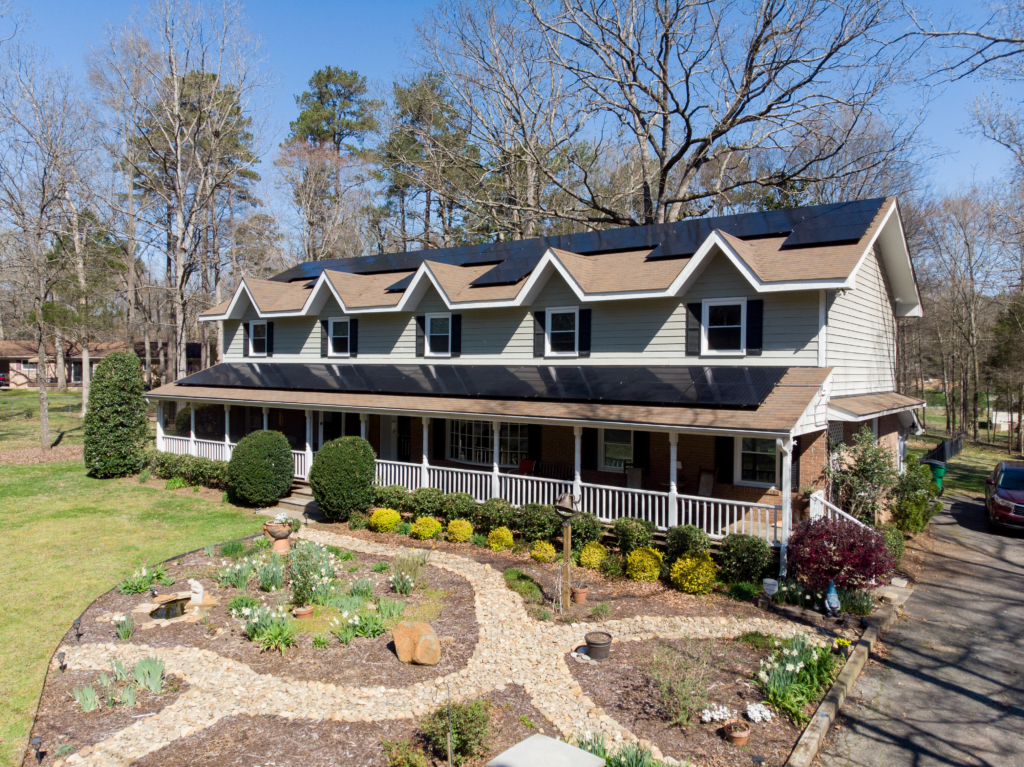Go Solar
GoSolar
Renu Energy Solutions encourages you to envision your energy future with solar through our GoSolar initiative.
In the Southeast, it’s not so long ago solar energy was seen as atypical and rare in our communities. Now, thanks to federal and state tax incentives, utility rebates, and the leadership of some notable corporations investing in solar, it has proliferated and is going mainstream.
Our industry is responding to the rapid increase in interest in solar among homeowners and independent business owners. The thought behind our GoSolar program is to encourage residents and business people with questions about solar to connect with us start giving solar some thought. You don’t have to be an expert – we have the experience to help you start your journey toward energy independence. After all: Everyone that goes solar starts at the same first step, which is to talk with a local solar consultant about your building – whether a home or business – that could use solar energy and discuss your unique energy use patterns to get a detailed look at what solar does for you.
Your GoSolar proposal will include:
-a worry-free energy production guarantee, to help make sure your solar investment is worthwhile and smart
-expert studies of your home’s sun exposure and use of advanced software to make sure our inputs and outputs are reliable
-a complete, full service installation plan for Renu Energy Solutions to handle all paperwork, permits and utility interconnection for you
The message with our GoSolar program is not to let your questions hold you back – we have answers and we pledge to work with you at your pace and with an approach that’s convenient and beneficial for you, as you begin on the way to taking control of your energy future.

Frequently Asked Questions About Solar for Your Home or Business:
How exactly does going solar and a solar system itself work?
How many solar panels do I need for my home?
Roof-size/available space: When we look at the size of your roof and the space available, we gather data that tell us the maximum number of solar panels your home or site can hold and we even consider shading. We use a software “Suneye” which takes a 360 picture of your roof and we use this photo to determine if your home is a good candidate for solar.
Energy Usage: When we determine energy usage we look at your past electrical bills from over the course of a year to make sure your system isn’t too big or too small.
Your Budget: We take your budget seriously and most importantly, we want you to be satisfied with our services. We take your feedback on how much you want to spend so that we can size your system appropriately.
What is solar net-metering?
Does Duke Energy offer net-metering?
Curious about the cost of a home solar system?
Ready to Own Your Own Energy?
Speak to Us Today!
